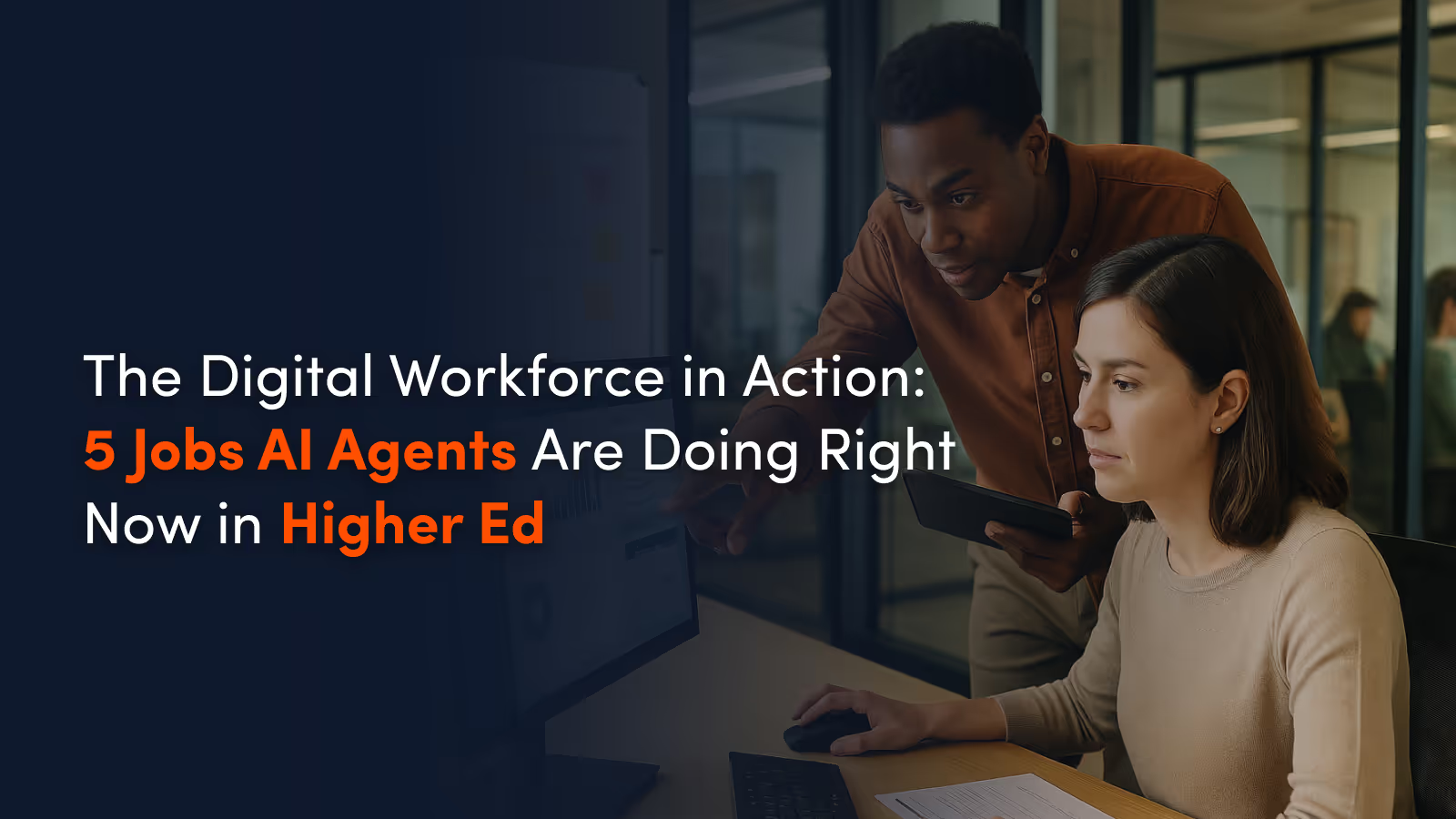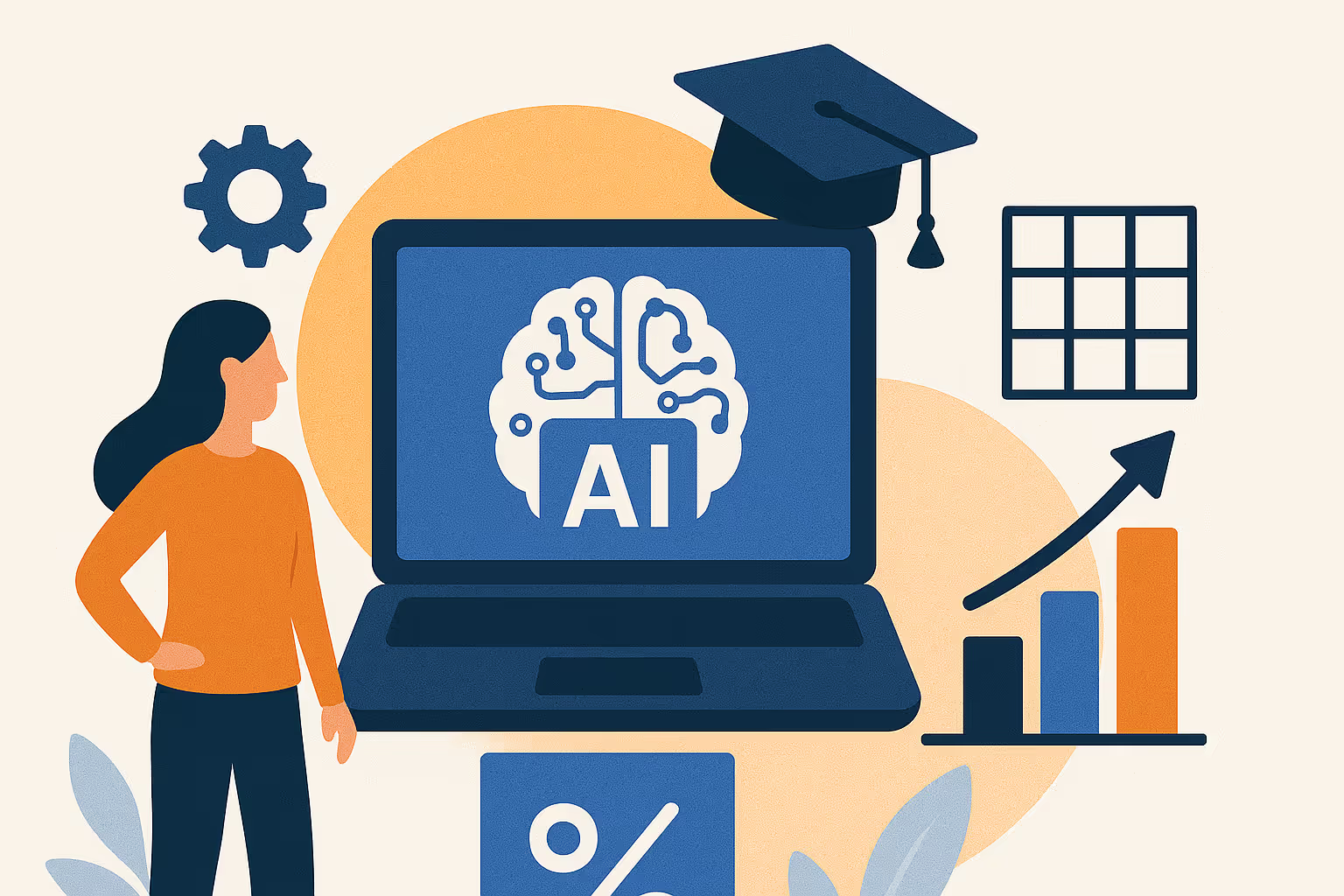About the Blog
Curious how AI is actually being used on college campuses? This article breaks down practical, real-world use cases of artificial intelligence across three key areas in higher education: Admissions, Marketing and Communications (MarCom), and Student Success. By highlighting real examples (anonymized or aggregated from public sources), we’ll show how institutions are moving from theory to practice — and making a measurable impact.
Whether you're just starting to explore AI or looking to sharpen your strategy, these ideas will give you inspiration and direction.
What’s Working: Real Campus Wins
- AI is being used to qualify and nurture prospective students faster in Admissions
- MarCom teams are using generative AI to scale personalized content while maintaining brand integrity
- Student Success departments are leveraging predictive models to reach students before they disengage
- AI tools are helping reduce repetitive, manual work and free up staff for more meaningful interactions
- Early adopters are seeing measurable improvements in yield, retention, and engagement
Admissions: Using AI to Prioritize and Personalize
AI is quietly revolutionizing admissions workflows behind the scenes. One popular use case is AI-powered lead scoring. Schools are using predictive models to sort inquiries by likelihood to apply or enroll, allowing counselors to prioritize outreach more effectively. This helps smaller teams manage large volumes of inquiries and improves response times dramatically.
Chatbots are also becoming frontline responders for Admissions offices, handling FAQs and helping students navigate the application process 24/7. At one public university, the chatbot resolved over 80% of incoming questions without human intervention, freeing up staff to focus on higher-value tasks like relationship building with top prospects.
And it doesn’t stop at conversations. Some institutions are experimenting with generative AI to personalize outreach emails at scale. By blending CRM data with AI tools, they’re crafting messages that speak to students' interests, location, and academic goals, without sounding robotic. The result? Higher open and click-through rates, and more qualified applicants.
Marketing and Communications: Scaling Content Without Losing the Human Touch
In MarCom departments, AI is proving its worth by helping teams do more with less. One standout use case is using AI to generate content variations — whether it’s rewriting a headline to appeal to different segments, or creating social captions optimized for different platforms. This helps teams stay on-brand while still adapting their message for multiple audiences.
Some schools are integrating AI into their content calendars to speed up blog writing and video scripting. Editors start with a generative AI draft and fine-tune it with their voice and strategy in mind. This process allows them to go from idea to publish-ready content in half the time — a game-changer when budgets and bandwidth are tight.
We’re also seeing AI tools used for image generation and brand asset creation, especially for campaigns that need quick-turn visuals or A/B test variations. These tools are helping schools maintain visual consistency while reducing dependency on outside vendors or overburdened design teams.
Student Success: Predict, Intervene, and Empower
Student Success teams are tapping into AI to identify at-risk students earlier and respond more proactively. One use case gaining traction is predictive analytics to flag disengagement — analyzing LMS activity, advising appointments, and attendance patterns to trigger alerts for follow-up. The goal isn’t to surveil, but to support before it’s too late.
Another emerging use case is using AI to triage and route advising inquiries. Students often don’t know where to go — is it academic support, financial aid, or mental health? AI-driven intake tools help direct students to the right support service faster, improving the student experience and reducing staff workload.
And perhaps most exciting, some institutions are exploring AI-powered academic coaching — digital assistants that help students track assignments, plan study schedules, and get reminders. These tools aren’t replacing advisors, but they are extending their reach and helping students build stronger habits.
Frequently Asked Questions
How are colleges using AI to support student success?
Colleges are using AI to predict which students might be at risk and automatically connect them to support services before issues escalate.
Can AI really personalize admissions outreach without sounding robotic?
Yes — by combining student data with generative AI, schools are crafting personalized messages that feel authentic and relevant at scale.










